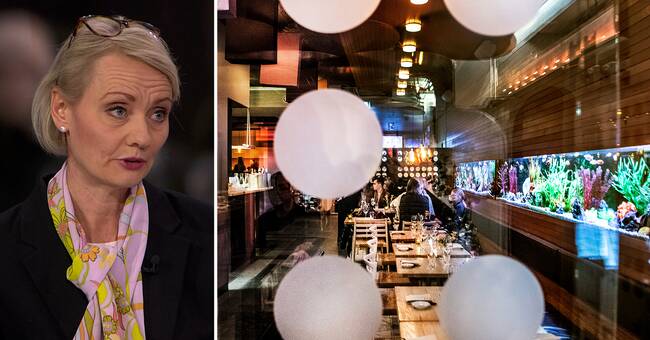On Monday, the government announced that it would introduce new and tougher restrictions on 12 January.
But the decision on the tightened measures has received criticism.
In SVT's Aktuellt, Karin Tegmark Wisell says that the targeted infection control measures are not sufficient to slow down the current spread of infection and that more and stricter restrictions have therefore been introduced.
Is relieving healthcare the most important reason why you are introducing these restrictions?
- There are two reasons.
It is to reduce the spread of infection.
This is a generally dangerous and socially dangerous disease and we have an infection control law that says that we are obliged to reduce the spread of infection.
Then we look at the proportionality and then there are other considerations we make, right now the National Board of Health and Welfare has been clear that care is very strained.
According to Karin Tegmark Wisell, the burden in healthcare is not only on patients who are cared for for covid-19 but also a large staff loss due to illness.
- This applies not only to healthcare but also to many other sectors that are hard hit.
New old restriction
The new restrictions mean, among other things, that restaurants and restaurants with a serving permit must close no later than 11 pm and may have a maximum of eight people in company.
A rule that is reintroduced in a slightly new version.
Have you evaluated previous measures of this kind so you know it works?
- It is very difficult to look at the individual measure and what it contributes to.
We look at the recommendations of the WHO and the European Agency for Communicable Disease Control and what we know.
It is about reducing the contact intensity in society, says Karin Tegmark Wisell.
Those who supervise restaurants testify that people are worse at sticking to the rules later in the evening.
This is the basis for the decision to close restaurants at 23.
- In this way, restaurants still have the opportunity to have two servings.
But it is not the case that it differs at 23.30 from 22.30, but somewhere we have to put this and take different considerations, says Karin Tegmark Wisell.

